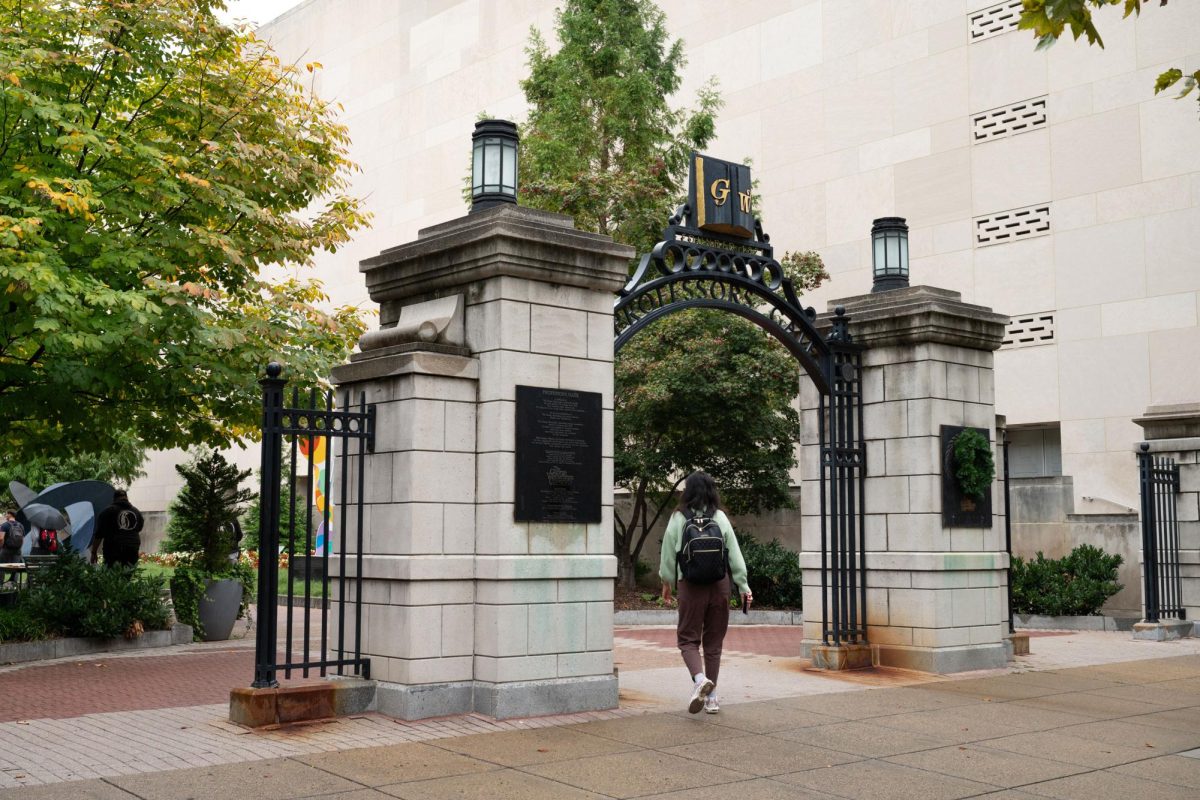GW was named in a class action lawsuit filed last week, which alleges that 40 private universities that participate in a College Board financial aid agreement are not giving students financial aid they are entitled to.
The 52-page lawsuit filed by Maxwell Hansen, an American University alum, and Eileen Chang, a Cornell University alum, in the U.S. District Court for the Northern District of Illinois on Oct. 7 alleges that an agreement between College Board and 40 private universities to count the assets of noncustodial parents — or parents who do not have any physical custody over their child — in determining students’ financial aid eligibility “artificially lowers” financial aid given to students. The lawsuit states that College Board’s policy, which was implemented in 2006 by 75 schools, decreases financial aid given to students by an average of $6,200 by counting the assets of parents who may not provide any financial support to their child’s education.
“The NCP requirements place onerous burdens on students that don’t live in a nuclear family,” the lawsuit states.
A University spokesperson declined to comment on the lawsuit.
GW, Georgetown University and American University are among the 40 private universities listed in the lawsuit. The lawsuit claims that the participating universities conspired in “anticompetitive” conduct by aiming to increase the cost to attend elite private institutions by lowering students’ financial aid eligibility.
GW’s financial aid website states that a student’s biological, adoptive and step parent’s assets will be considered in determining financial aid. The website states that if a student’s parents are separated, the University expects both parents to provide financial information.
The website states that noncustodial parents will receive an email from CSS — an application College Board uses to determine financial aid eligibility — to fill out their income information on the noncustodial profile.
“The CSS PROFILE and Noncustodial PROFILE applications are required for all incoming undergraduate students and continuing students when they initiate their first financial assistance application,” the website states.
According to the lawsuit, for many students with noncustodial parents, the addition of that parent’s assets into their financial aid consideration doubles their wealth on paper — making them eligible for less financial aid even if that parent has no financial involvement in their life.
The lawsuit claims that the universities listed are complicit in the College Board policy by helping design it and advocating for its implementation. The lawsuit states that GW geography professor Elizabeth Chacko is on the Board of Trustees of the College Board and played a role in voting for these policies to be enacted. Chacko said the College Board legal team is reviewing the complaints in the lawsuit.
“I am confident that the College Board will prevail in this action, and the College Board will continue to support our member colleges,” Chacko said in an email.
The legal basis for the lawsuit is the Sherman Antitrust Act of 1890, which prohibits companies from engaging in acts that restrict competition in the marketplace. The lawsuit claims that since elite private schools take up a large part of the college market, they have created a “monopolist” market where students have fewer affordable options for quality education.
The lawsuit asks for a jury trial for the case where if they lose the universities will be made to compensate the plaintiffs in the lawsuit for the financial aid they withheld from them.





